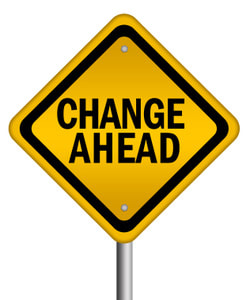 Holidays are full of hustle and bustle, tradition, travel , noise and family .For most of us, it has a bit of stress added in. For children and adults with hearing loss, there can also be extra stress and loneliness. At first thought, you might find this odd..this is the BEST time of the year, right? Well, try to imagine yourself from their point of view. If a child or adult only signs and the family and friends with whom they get together with during the holidays do not sign, this makes communicating very hard. Perhaps some people have taken time or interest and know some basic greetings..but after that, people often talk quickly and move on. If a child or adult uses listening and spoken language, it is not necessarily much easier. People speak fast, there is background noise, people are moving all over while talking, which distorts their voice and makes it very hard for someone to speech read. Often, children and adults with hearing loss became extremely lonely and feel left out. There is hope. Plan ahead. If you are inviting people with hearing loss to your home, have paper and pencil or technology available to make communication flow easier. If you are a parent or spouse of someone with hearing loss going to someone's home, bring some communication options along. Set up seating in a semi circle, so people can all see each other. Remind people to get the person with hearing loss' attention first, before speaking or signing. This may not make the communication perfect, but it will allow that person to feel intentionally included. This helps that person want to advocate more and some of the loneliness can disappear. Another great idea is to buy some movies or books for the child with hearing loss that have characters in them who have hearing loss, so they can relate. It is also a great idea to get them for the families who don't have hearing loss, so they can start to learn about hearing loss.
1 Comment
People in 2018 are very aware of labels, names, categories, etc. It is not politically correct to call people "disabled",but some people prefer to be called 'disabled.' Others prefer to be called "differently abled." I have learned long ago, that it is not my place to decide what to "label" or "call " people. I do my best and hope people will politely share with me how they would like to be addressed.
When it comes to hearing loss, there are many ways people want to be addressed. Some people say, "Deaf". Some people say, "deaf". Some people say, " hearing impaired," while others feel offended by that term. Some people say, " hard of hearing " even if they have no hearing and use a cochlear implant. When I work with my students, I try to explain the medical terms vs the cultural terms. It is not my place to decide for them how they refer to themselves,but I do try to educate. If a person is 'deaf', that literally means that on an audiogram, when their hearing is tested, they have a significant hearing loss. That means they can not hear without amplification. For some, it means that even with hearing aids, there is no understandable hearing. This person may use a cochlear implant and be able to understand spoken language after much therapy. For someone to be labeled "hard of hearing", it usually means a person has hearing loss,but in the mid ranges. This person does get benefit from a hearing aid and is able to understand spoken language. When a person identifies himself as " Deaf", it is related to culture. It means he feels he belongs to the Deaf culture-knows/uses American Sign Language, does not feel like he has "lost" anything because he can 't hear some or all spoken language. He may have a significant hearing loss or a mild one,but it is how he culturally feels. A person who calls herself "hearing impaired " usually is someone who fits in more with the hearing world and sees the hearing loss as a deficit medically, not a culture. There is no right or wrong way a person should label herself. People 's perspectives and understanding of their hearing losses may change over their lives, due to changing hearing loss or due to the people they meet. It saddens me when one group tells the other group that they are wrong. My hope is that people in both the 'deaf' and the "Deaf" community can come together and be open for all people to flow in and out of each group. Transitions can be really hard for all of us..change is the unknown, the unforseen,the never been done before.. We might think we know what to expect,but often it is better or worse than we imagine. For children with hearing loss, transition can be very difficult.
There are many types of transitions kids go through. It is the end of a school year-that is a huge transition. Changing to all day daycare vs home or school is a big transition. Changing from home to camp to swim lessons are littler transitions,but still have impact. Children with hearing loss often need information broken down, repeated,and rephrased in learning new information in school. The same goes for talking about transitions. Without extra prep on your end, transitions can become quite scary. What can we do to help ease the fears and worries that go with these transitions? It is really important that families and staff working with children who have hearing loss talk alot about upcoming transitions. Create visuals-have a calendar to count down the days. Have a calendar to show the new events-are swim lessons weekly, twice/week, will day care be daily, half a day, twice/week? The options are endless. Sometimes children with hearing loss don't understand the full message-they might think they are going to day care or swim one time and that that event is over. Having discussions, preplanning,and having visuals lessens the confusion. Try to keep some routine and some comfortable parts of the old routine mixed into the new-maybe they will use their school backpack to go to daycare, maybe they will take a stuffed animal from home for nap time at day care, maybe they will always get picked up for swim lessons at the same time of day. Try to incorporate things that give your children comfort when you are planning transitions. Most importantly, remember, you were young once, too. Slow down and try to picture the world from their eyes. What may seem silly or inconsequential to you might be the biggest fear of these little guys' lives-give them the attention and love you know they deserve. A hug and a smile go a long way. Hearing loss doesn't have to be a lonely thing.Hearing loss can be isolating for children. It is often called the invisible disabilities, as children with hearing loss often don't have any physical needs other than not being able to hear. Children in school are often told they are lazy,if they don't follow all of a teacher's directions. Children may be teased, if they answer a question wrong in class or mispronounce something. Children are not always believed ,when they tell someone that they can't hear well.
These negative responses from others often lead children with hearing loss to have low self esteem. Children start to believe the negative images that are being portrayed of them. They start doubting that they can be successful. They start feeling isolated. Children with hearing loss often believe they are not smart,because they are doing work wrong or get in trouble in school. I wanted to change that. I have been in the field of Deaf Education for over 25 years. I try daily to make a positive impact on my students, but I wanted to make a bigger difference. I started the Forever Friends' series for two reasons. I believe children with hearing loss need to see more characters with hearing loss in books. They can relate to these characters, understand the issues the characters are going through, and also celebrate the characters' successes. In this way, my hope is that children with hearing loss will see that they CAN do anything they want to do in life. my second reason for creating these books is to show hearing children that children with hearing loss CAN be successful. When hearing children learn a bit about deafness and hearing loss, they will be more understanding and more open to learning even more. They will start to see children with hearing loss just as children-who love to do same things that children with hearing like to do. I truly hope you enjoy my weekly blog and my books. Please subscribe so you don't miss any of the blogs. Feel free to message me via the contact page, as well. I look forward to being your Forever Friend. |
Allison Schley is a teacher of deaf and hard of hearing children. She took her passion for kids with hearing loss and became an author. She wants all children with hearing loss to know they are amazing and that hearing loss will not keep them from following their dreams.Archives
July 2023
Categories
All
|

 RSS Feed
RSS Feed 